September 4, 2024
Three Stories of Change: Wildflower Pocket Gardens
Yikes, it’s already September! And that means I need to jump on the wildflower seed bus. October to mid-November is prime time planting time for spring flowers like this collection in Ilse Frank’s front yard last April. It was the first garden on CTG’s visit to small pocket prairies created by Studio Balcones landscape architects Ilse, Jennifer Orr, and Michael Meihaus in their own yards.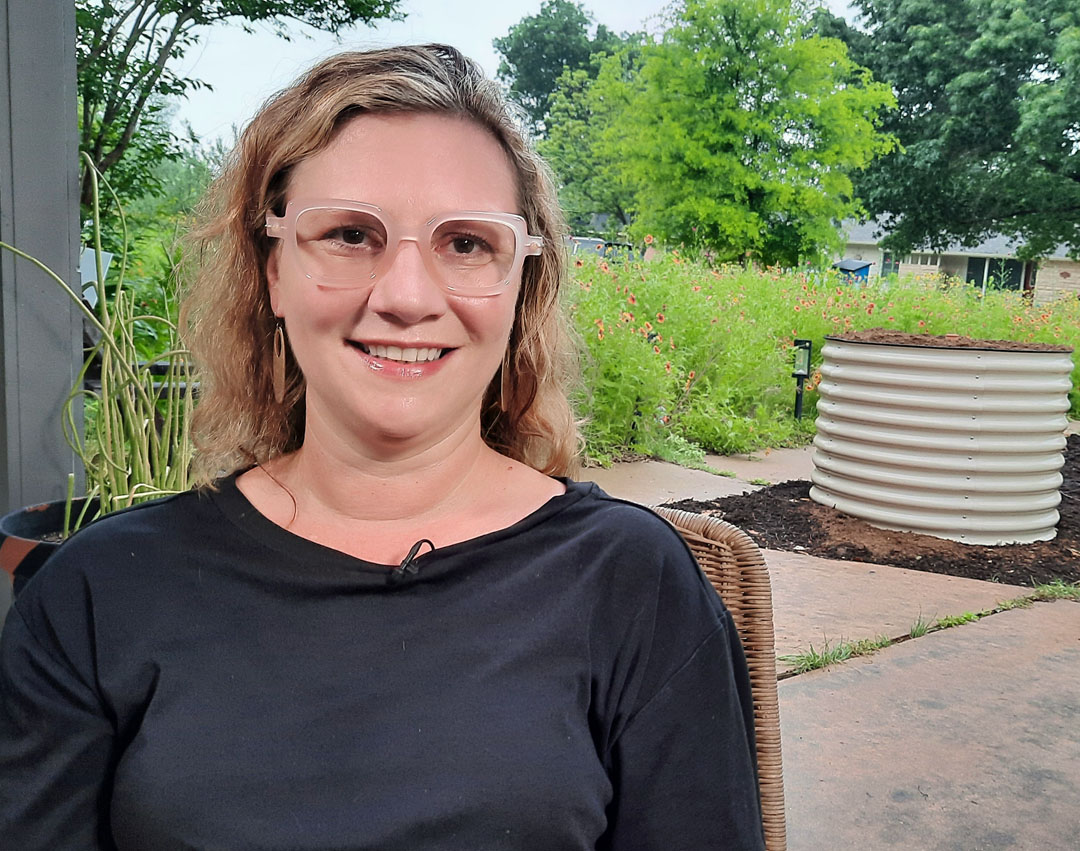
When Ilse and her husband Tim Braun purchased their first home in 2021, “We learned very quickly that we do not like mowing at all,” she told us. “So, we started killing our lawn in August of 2022. And we had black plastic down for quite a long time. And finally, in May of 2023, we lifted up the black plastic and seeded it. It’s pretty good soil, as far as I can tell. But we did amend it with some compost, but overall, on the clay side.”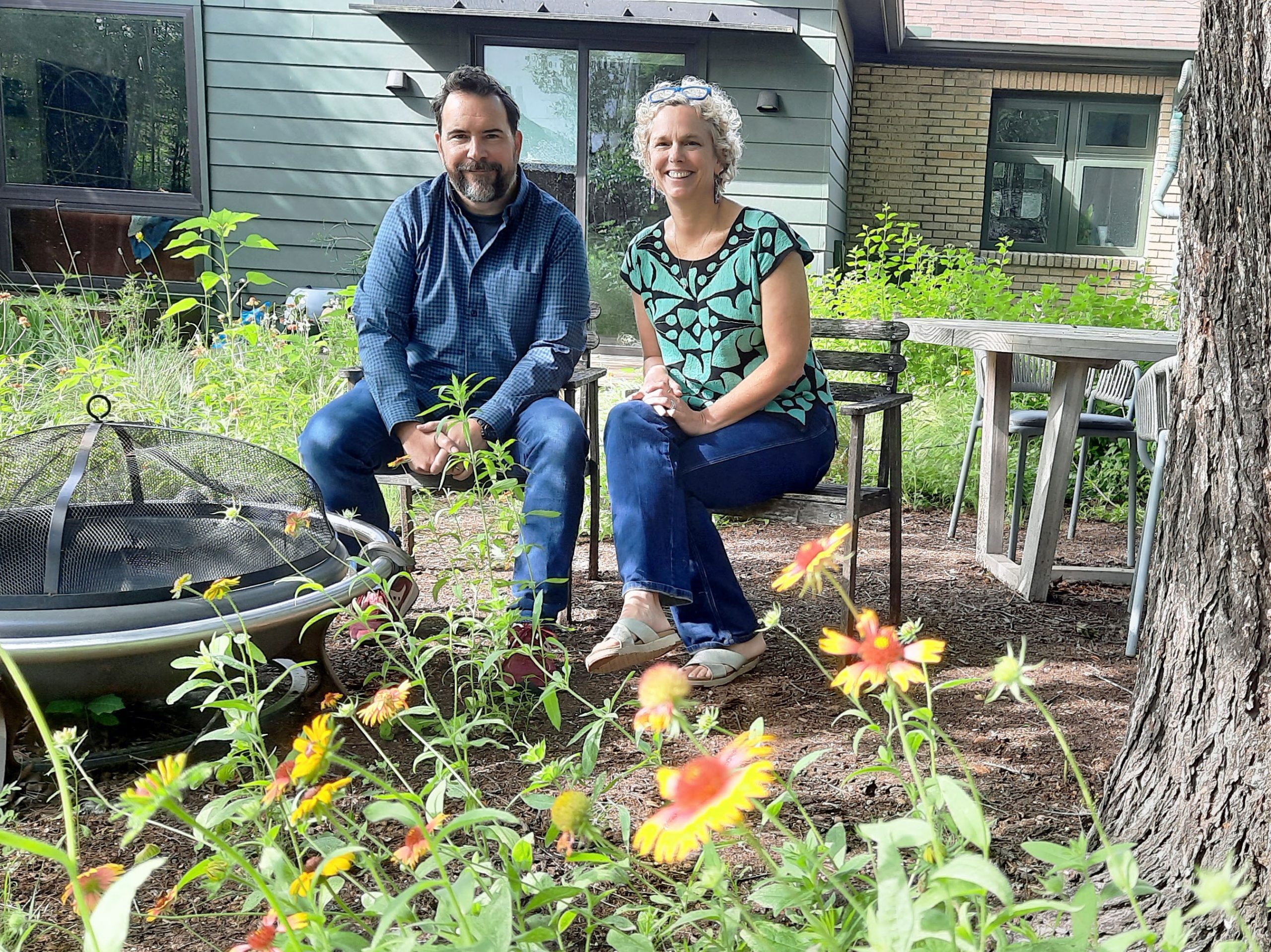
In 2008, Jennifer Orr and Matt Reilly faced lawn and nandinas when they moved in.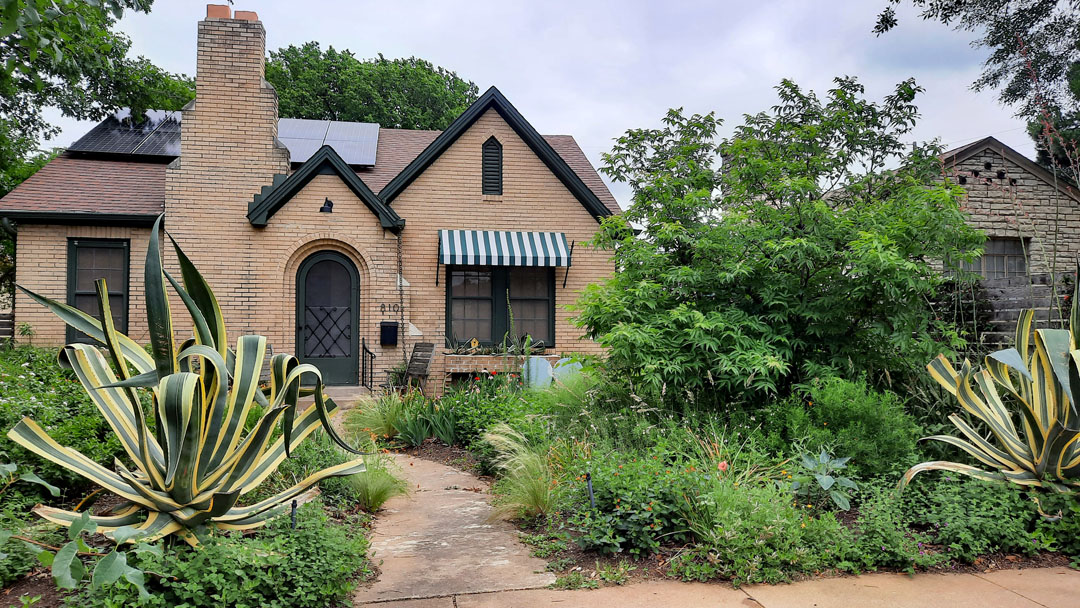
They went after it with a shovel and pickaxe. Vigilance kept weeds at bay until the garden established dominance (of course, spot weeding by hand never ends). A Mexican buckeye started from a passalong seed frames the side fence.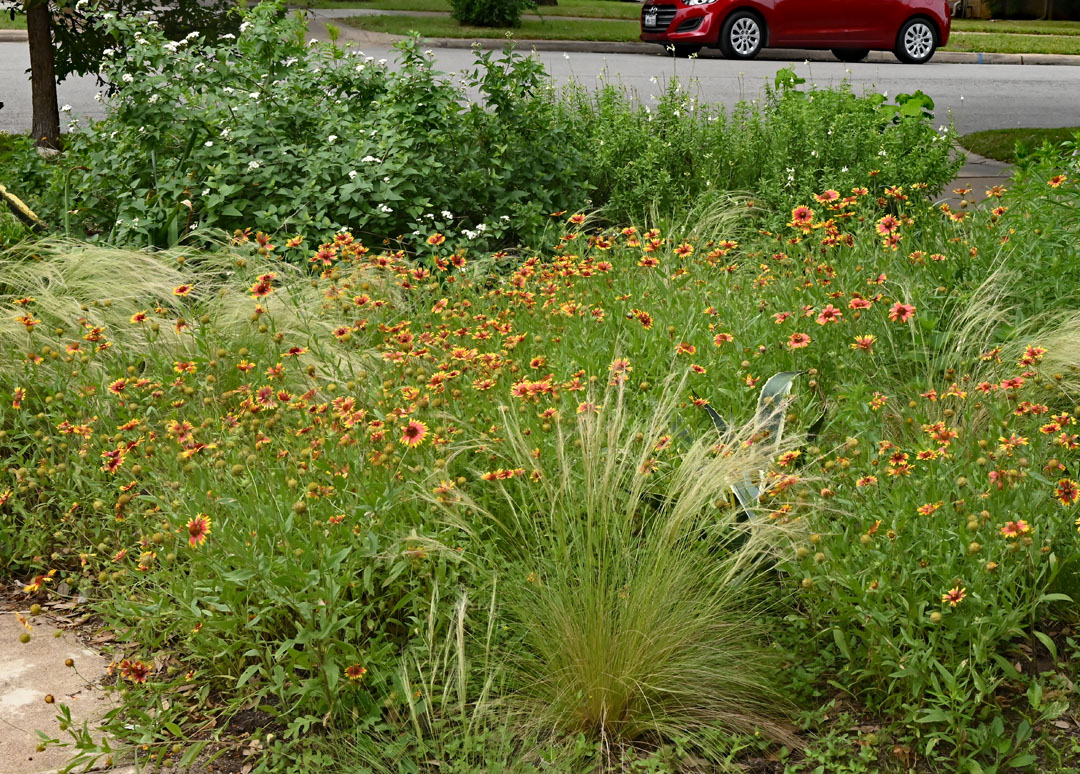
Against the street, Jennifer chose seasonally-flowering perennials, including Mexican feather grass, salvias, shrubby boneset, Hamelia patens, lantana and agaves. She punctuates with seasonal wildflowers like Indian blanket and poppies.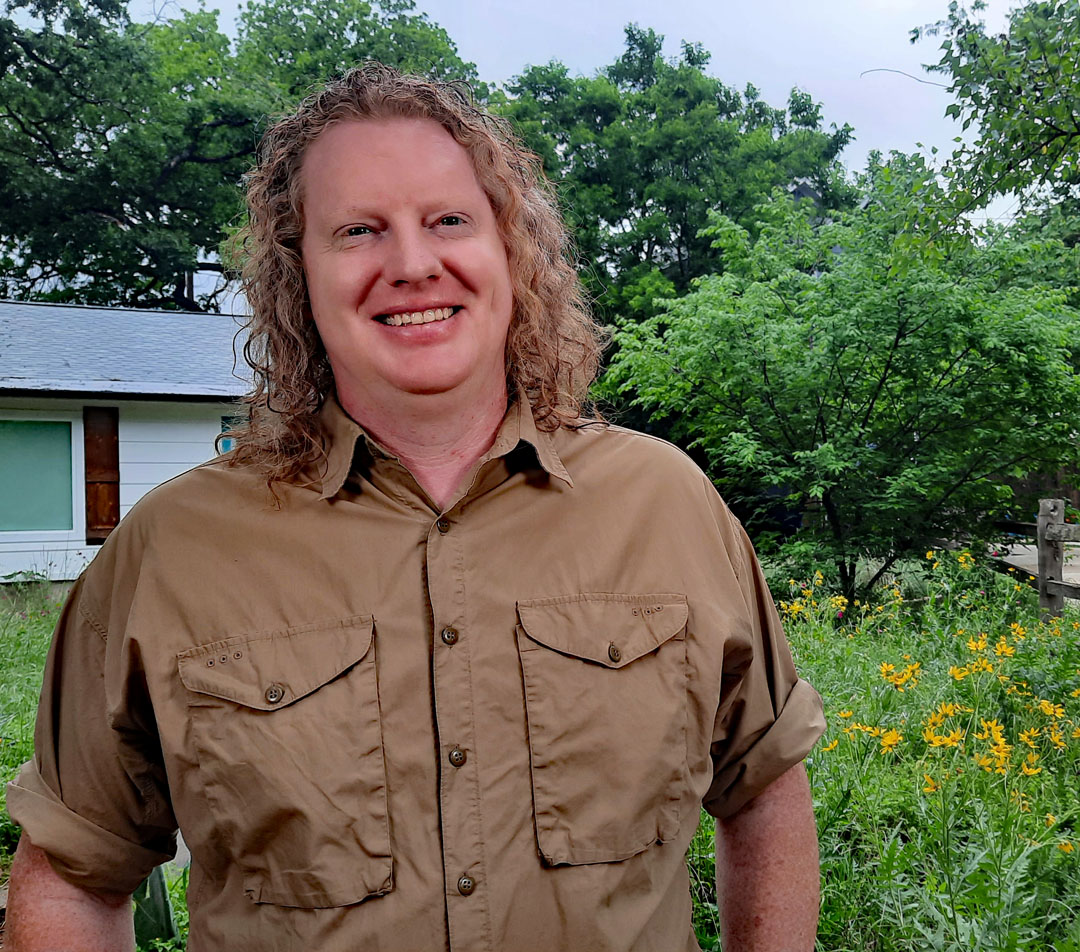
Over in Delwood in one of the few pockets of post oaks, Michael Meihaus and his wife bought their small house in 2017. Their first goal was ridding the Bermuda grass to create a good environment for seed germination.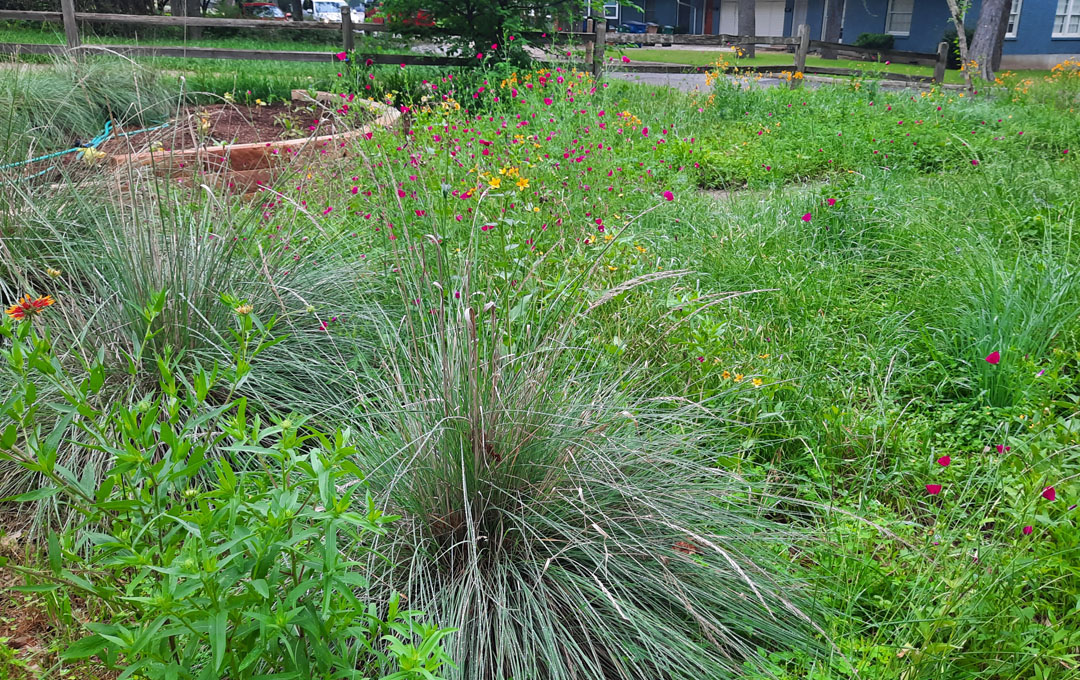
“I don’t like to do one treatment over the whole area since it’s an experiment. So I tilled half the yard and raked out what we could of the Bermuda roots. And the other half we just let go essentially, and seeded over the Bermuda grass and we did it in fall of probably 2018,” Michael said. “Our prep was only native soil and a little bit of compost as a top dress, just to kind of get some nutrients back in there.”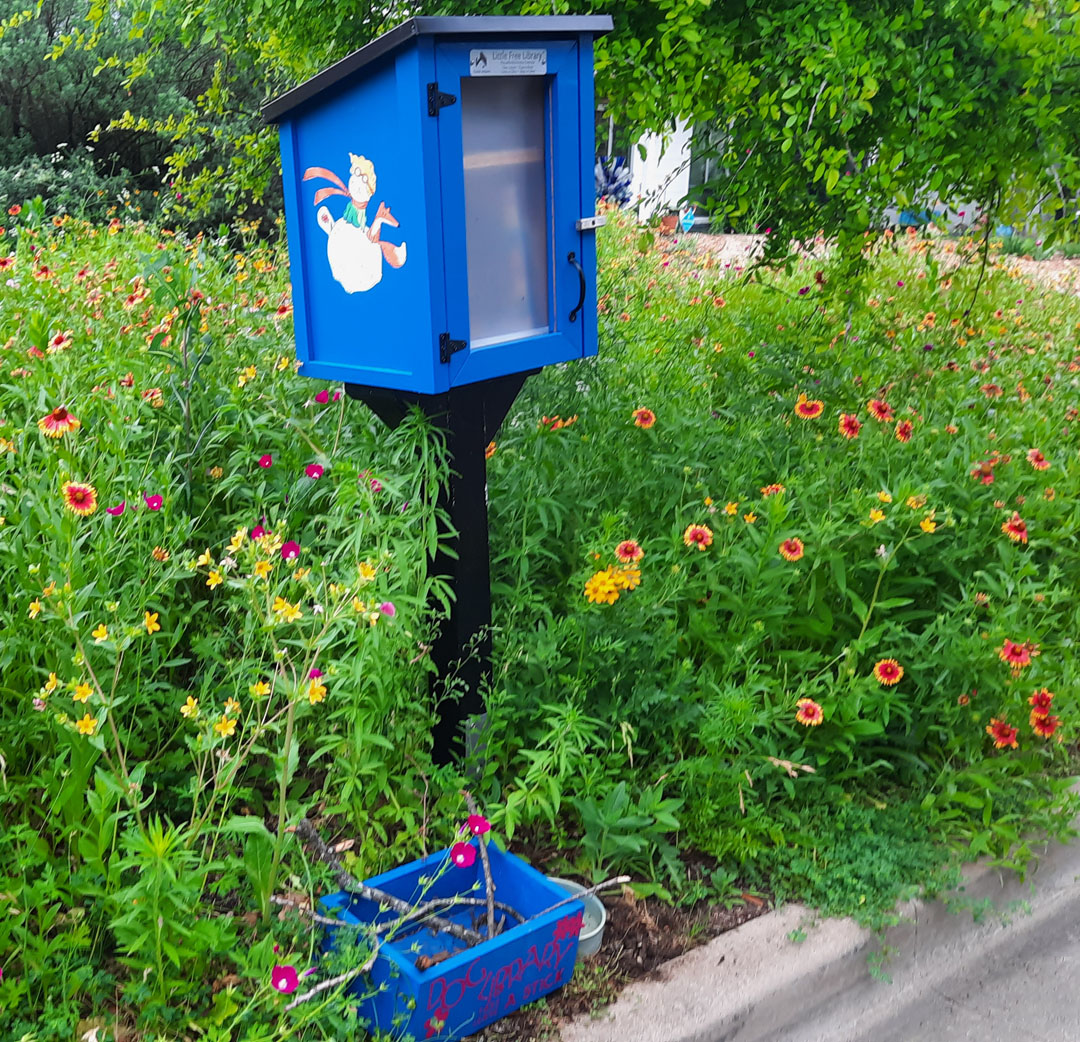
Ilse was up for experimenting with seeding wildflowers, too. In their first spring, wildflowers dominated, but pops of native grasses were coming through. Still, “I’ve never had a yard. I was very nervous, honestly,” she admitted. “Like, is this is going to work? What’s going to happen here?”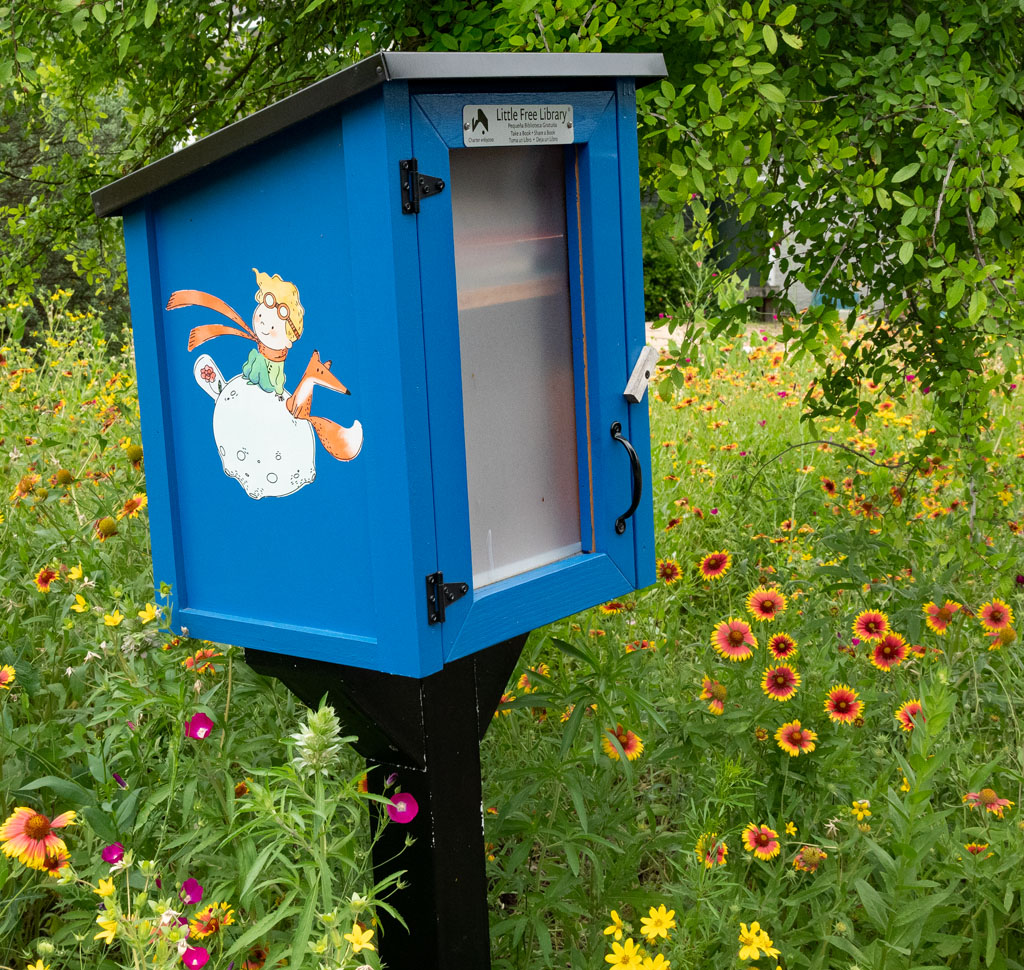
Sensation is what happened! When enthusiastic neighbors dropped by to check out the bees and butterflies, they check out the Little Library, too. “My husband is a writer, and he’s a professor at St. Edward’s. And it’s just such a joy. Everyone stops by and peeks at it,” she added.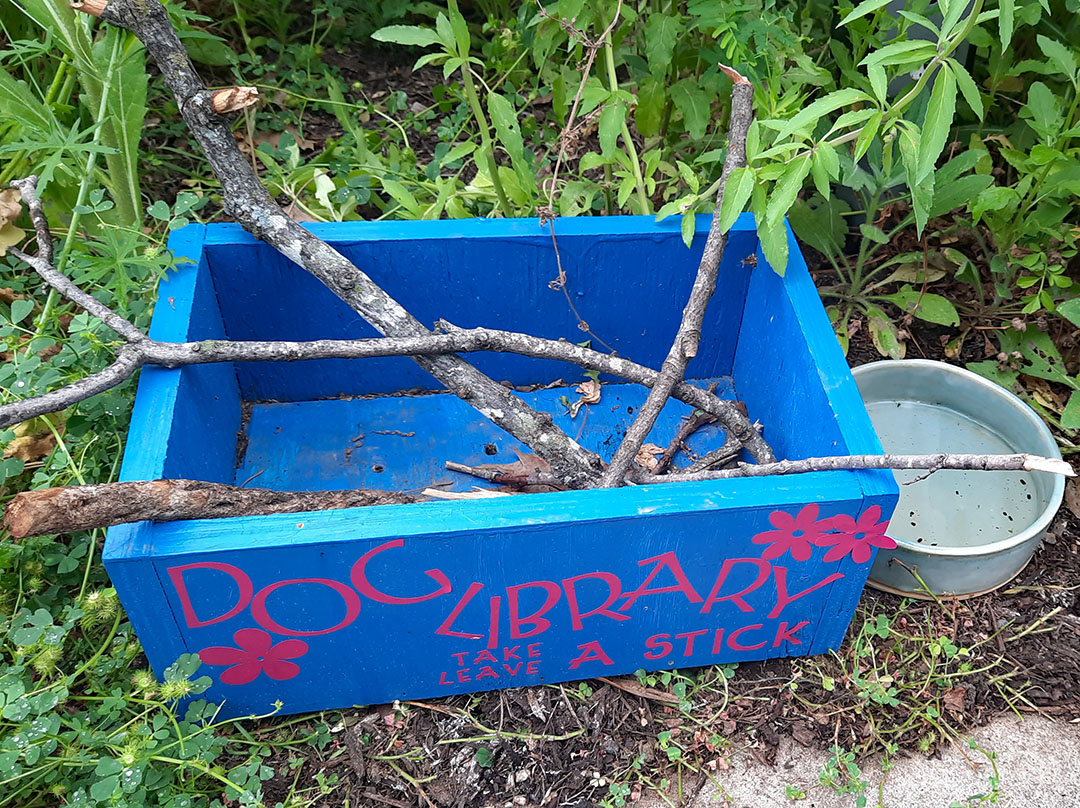
Since their dog knows all the neighbor dogs from their walks, Ilse and Tim built a dog library for the stick readers. “It’s just like a fun little piece of community and getting to know our neighbors.”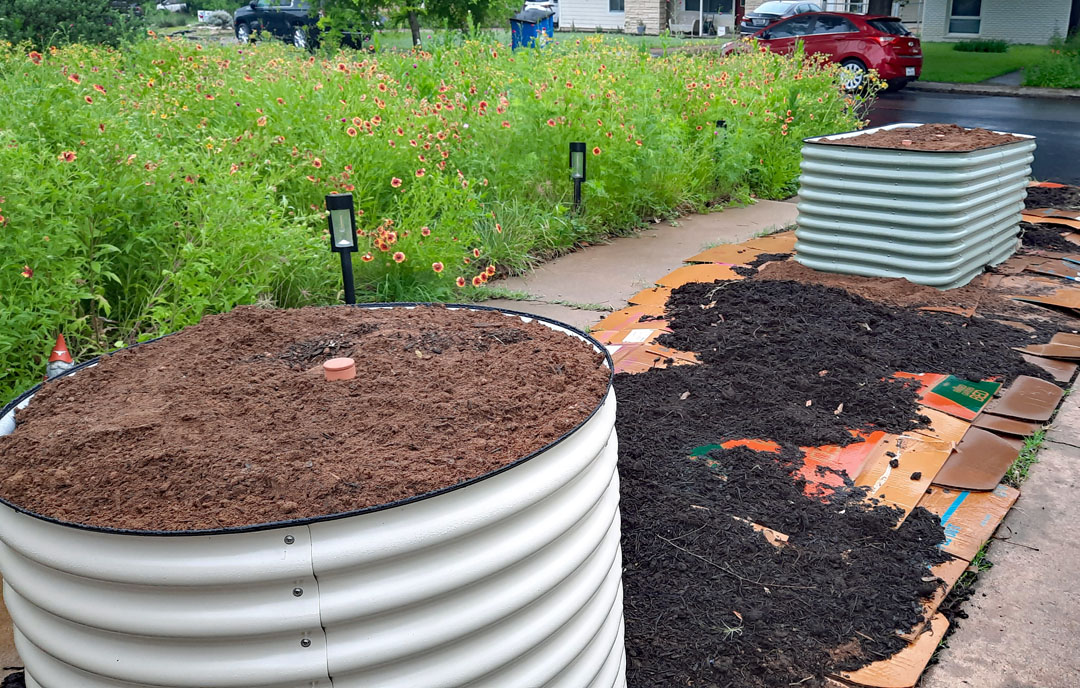
Their 2024 project was to sheet mulch the driveway strip to fend off Bermuda grass and install raised beds for vegetables.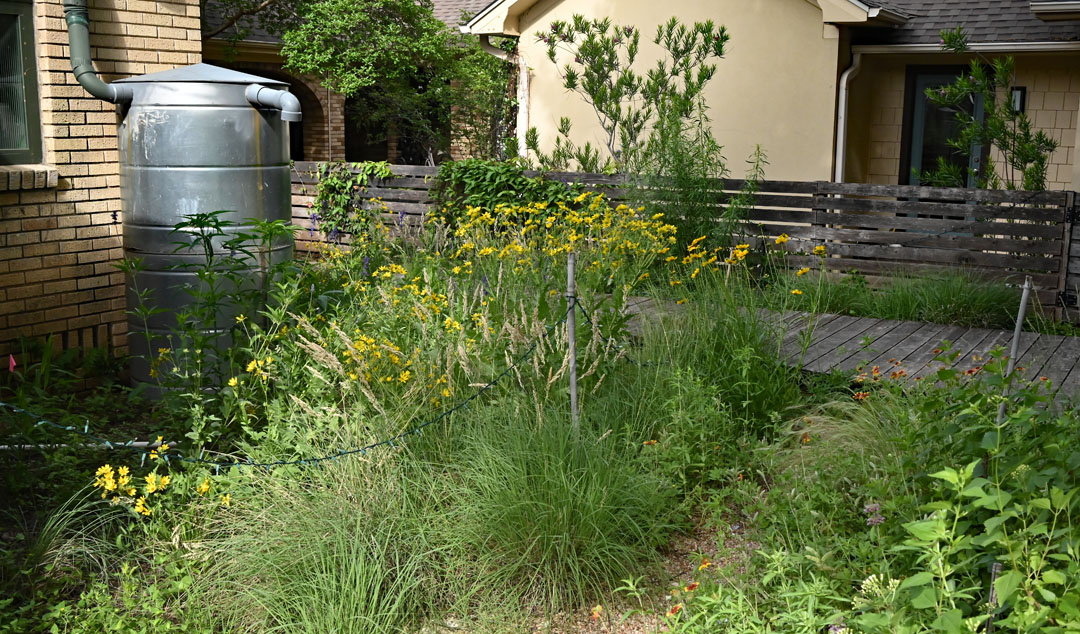
In 2020, Jennifer and Matt reworked an old driveway and backyard concrete pad into a boardwalk and layers of wildflowers, perennials, and grasses. In a cove with their cistern, Jennifer planted sideoats grama, Texas bluegrass, Texas star wildflower, lanceleaf coreopsis, sedges and mealy blue sage.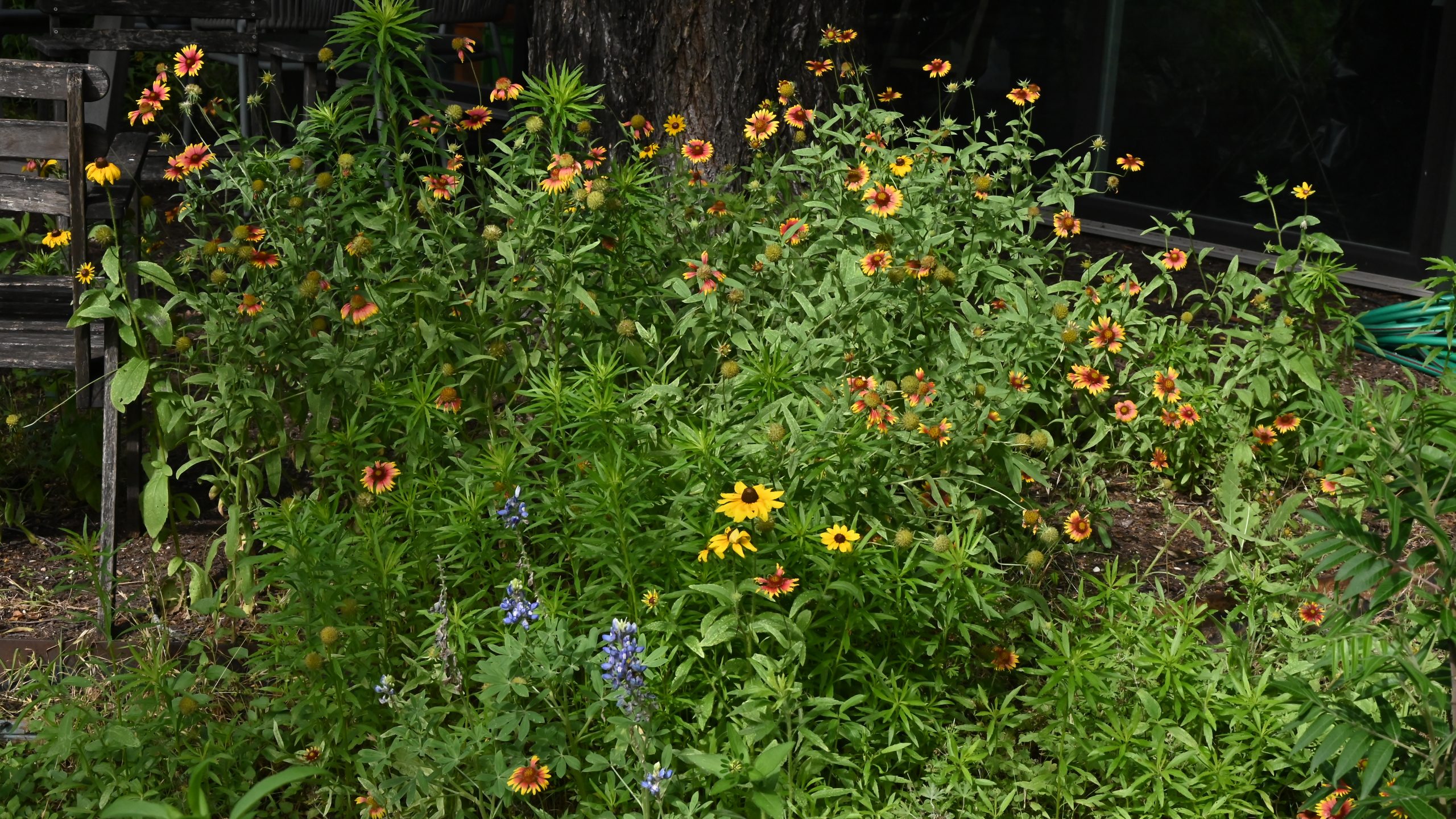
Inspired by Michael’s project, Jennifer decided the newly-revealed soil was perfect to seed natives. This vignette clusters Indian blanket, horseweed, black-eyed Susan and bluebonnets.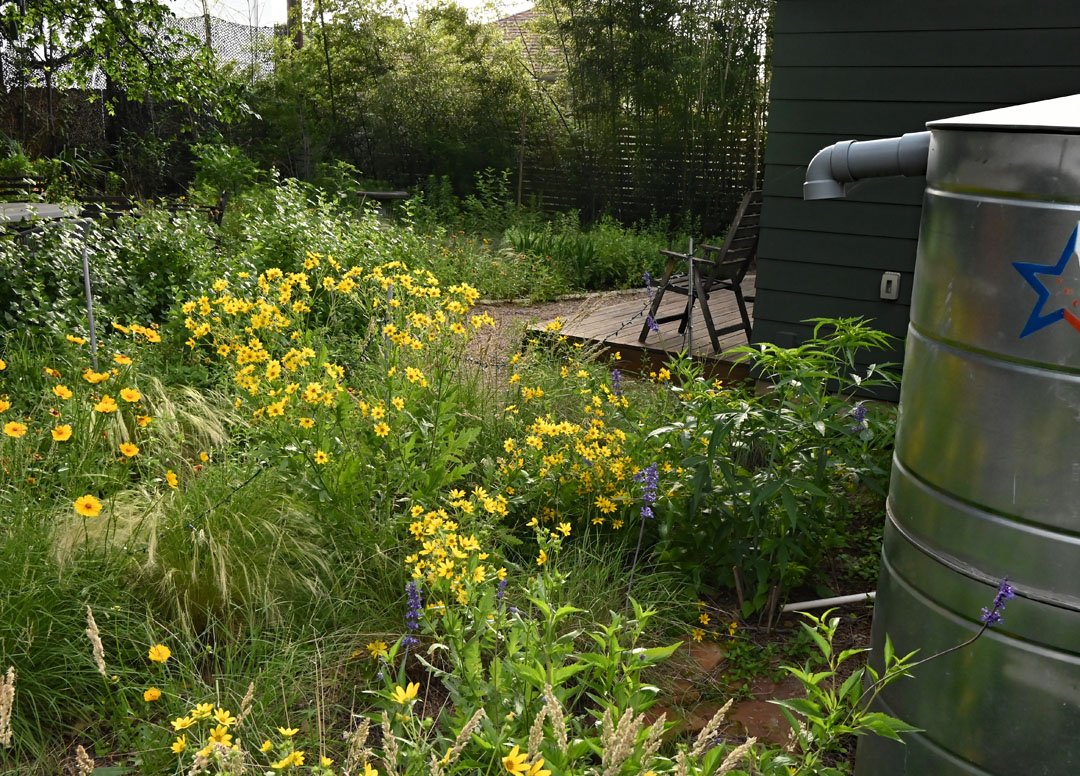
Since concrete topped the soil for decades, Jennifer’s first-year seedlings didn’t face competition from unwanted species.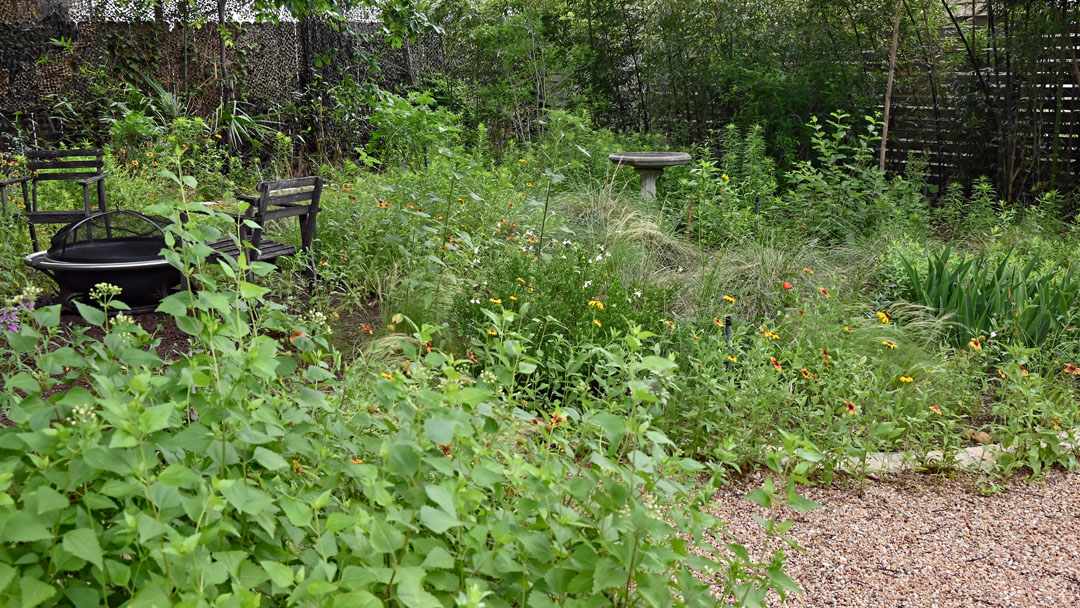
Jennifer framed the backyard with perennials that bloom across the year, joined now by wildflowers that navigated from other spots, along with structural Lindheimer muhly grass. In a few weeks, foreground’s shrubby boneset will bloom in tandem with asters for migrating and resident wildlife.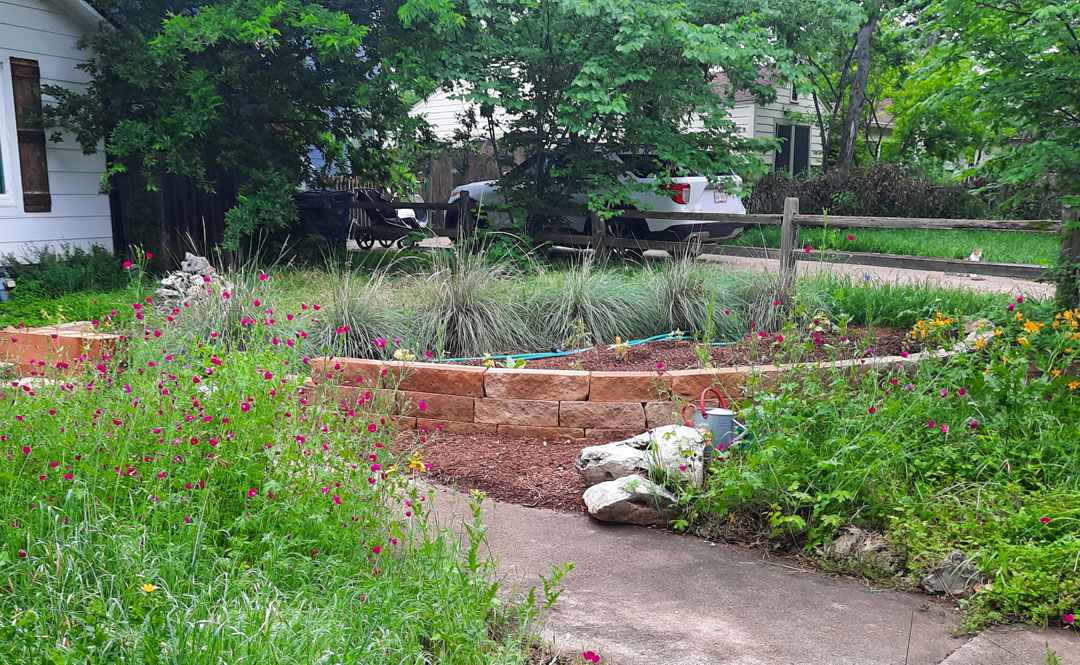
Michael’s also a big fan of durable Lindheimer muhly for its year-round structure and showstopper flowers and seedheads from summer to winter. Its soft foliage makes a great screen and to designate one area from another.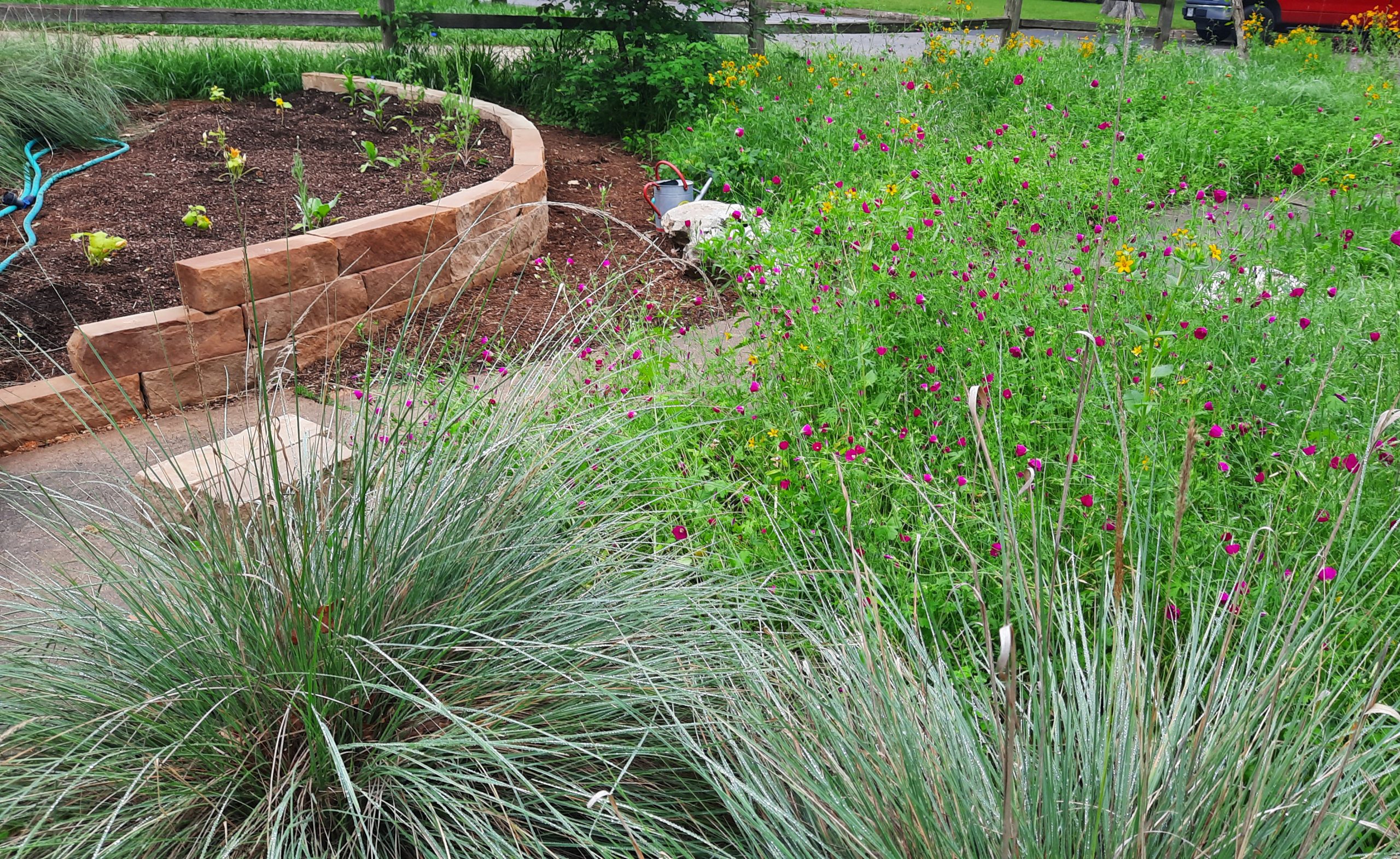
These have been in the ground for almost seven years now, and I’ve never cut them back. They don’t have a problem pushing through the old growth. I would encourage people to resist the temptation to cut back bunch grass if they can,” he said.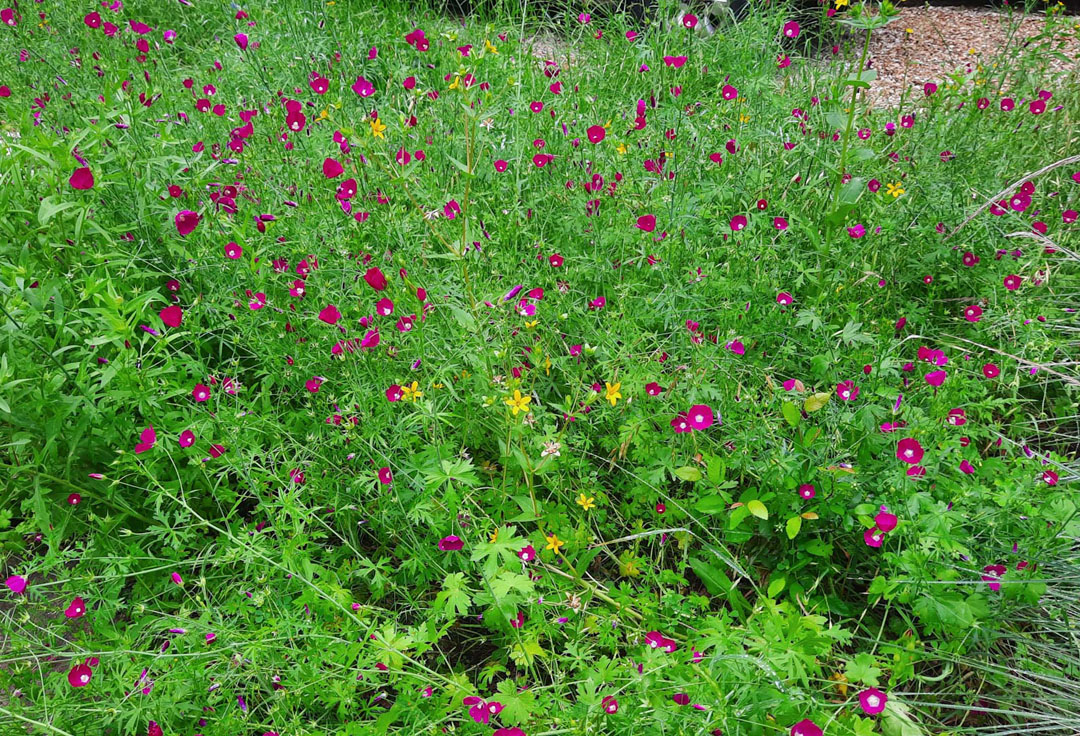
Annual winecup and Texas star took the stage on our visit, but mealy blue sage and others were coming in. He’s trying to not tinker too much. “I’m experimenting with just letting things go. So all that dead herbaceous cover, everything that’s senesced and gone to seed, is just matted down over time,” he said.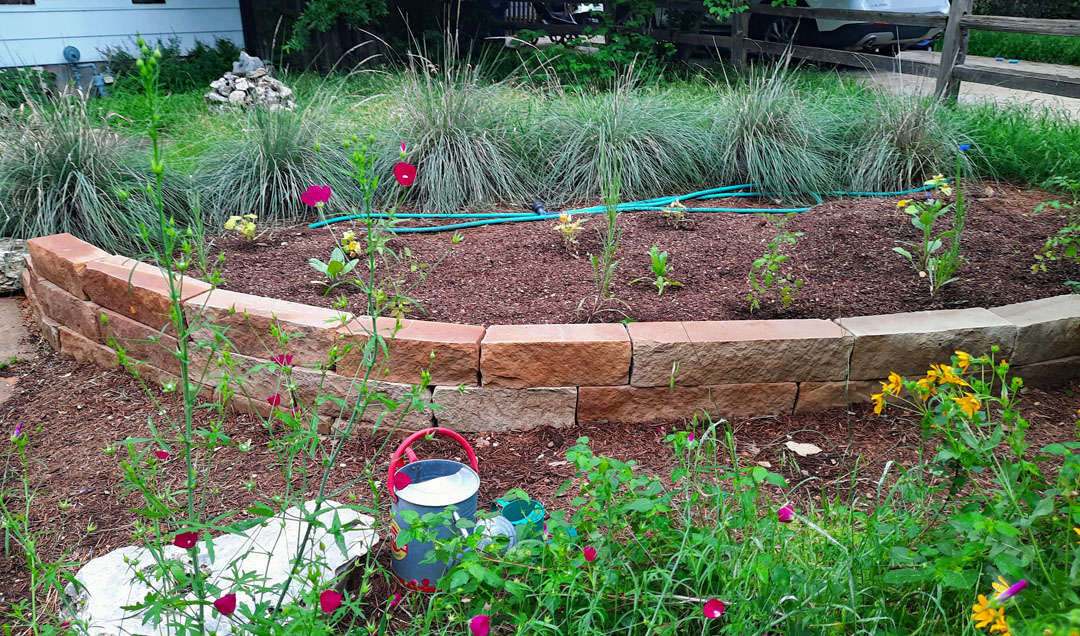
Last spring, they built a bed specifically for their two-year-old to have fun planting her own vegetables and flowers in new soil easy to scoop with a small shovel!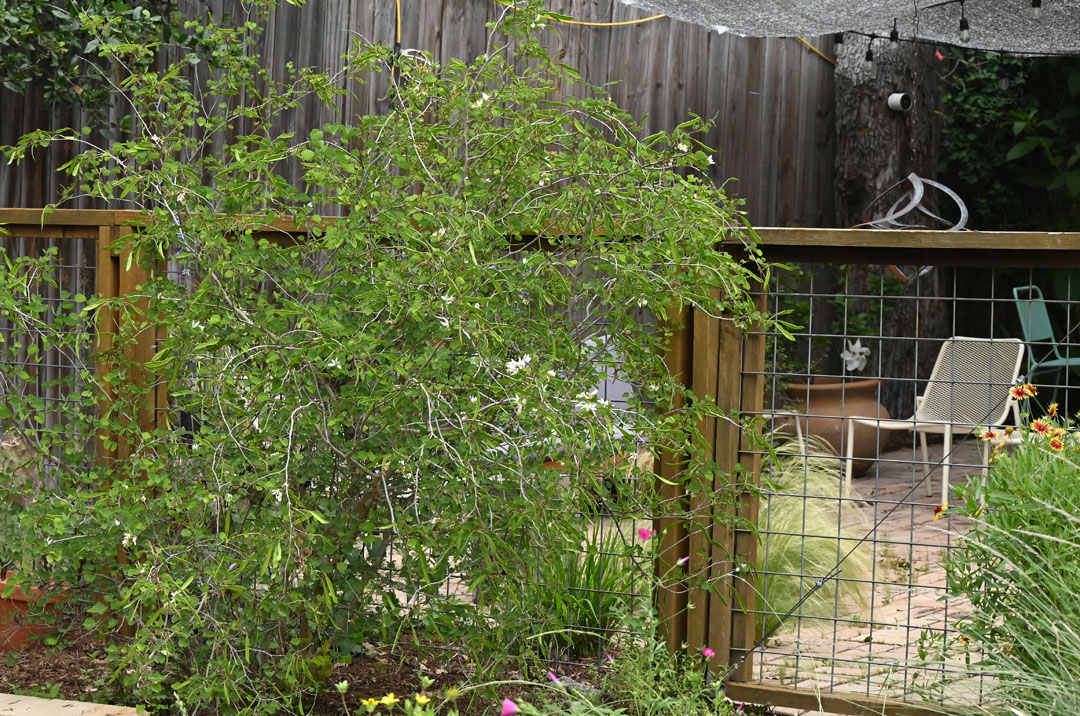
To frame a side yard patio from the front, they chose fragrant anacacho orchid.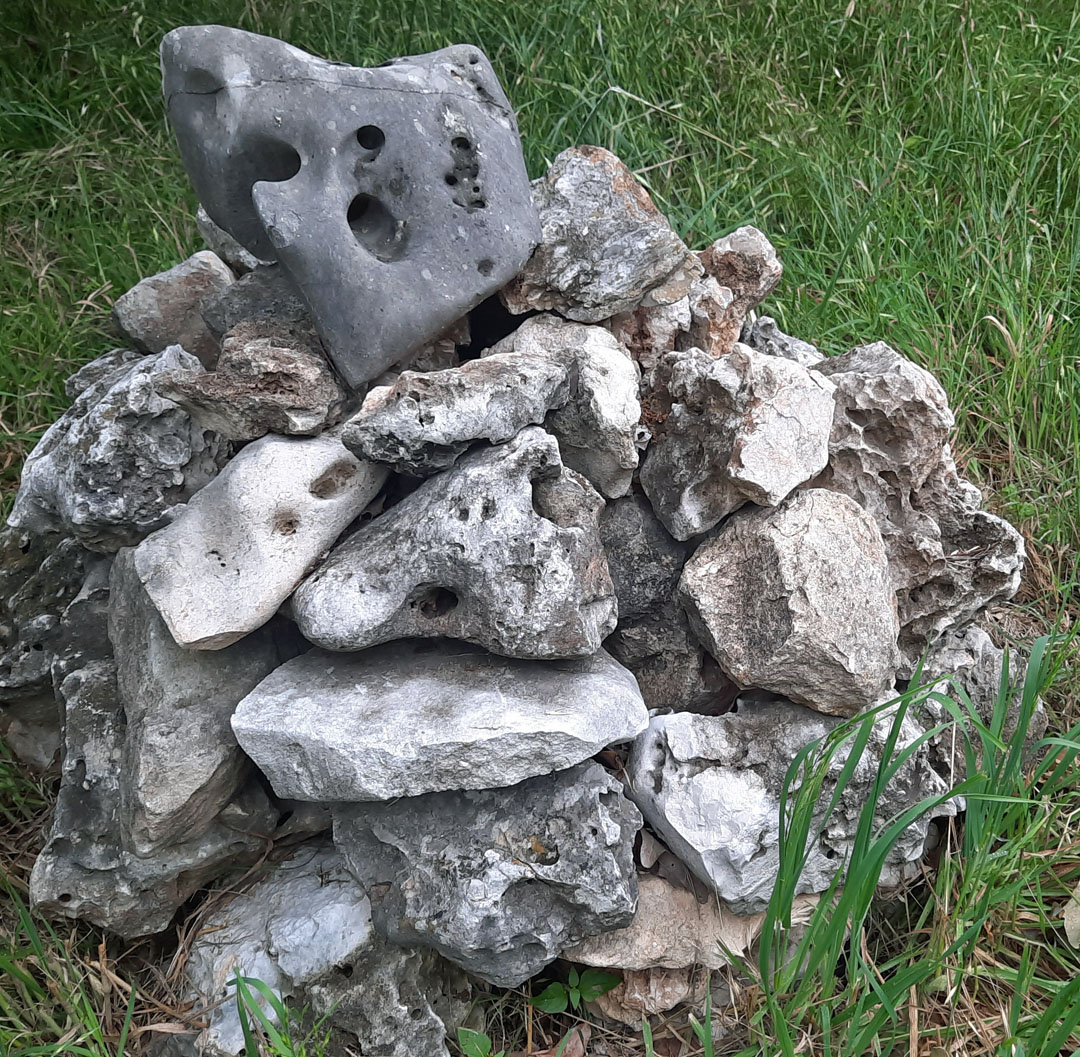
And not to forget the critters that want a place to call their own, Michael stacks the rocks he likes to collect. “Really, the rock work is a great way to slow water down and to create these little just like little micro catchments where plants can take roots and seed can distribute and germinate,” he added.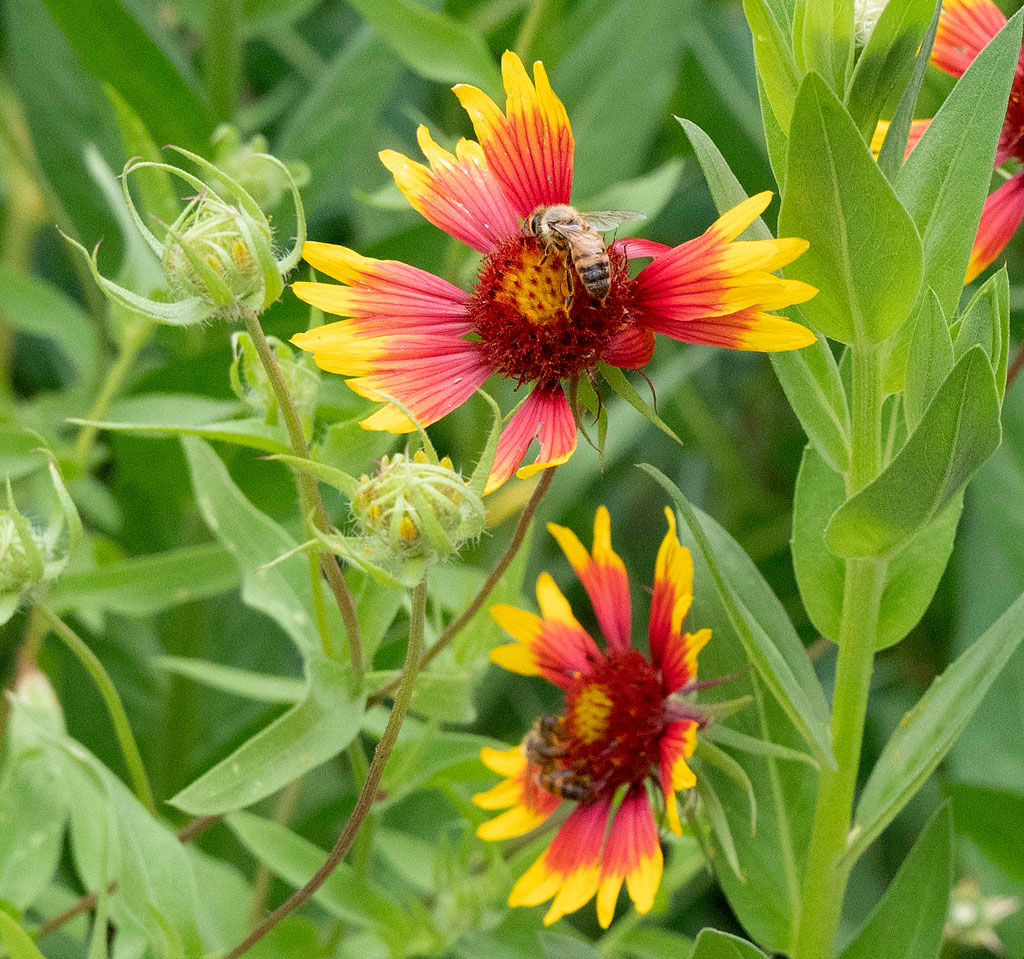
Critters it what it’s all about for Ilse and Tim. We love it. And everyone stops to look. This is the gift that keeps on giving,” Ilse said.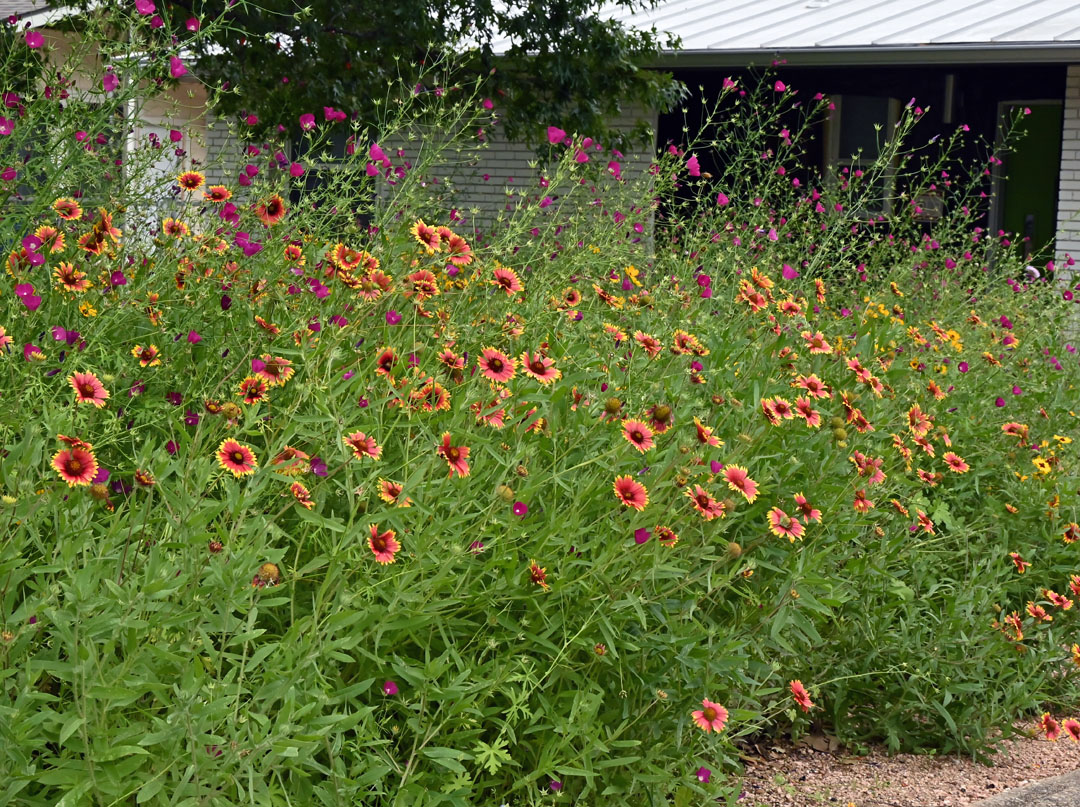
Neighbors keep the beeline going with gaillardia and annual winecup of their own.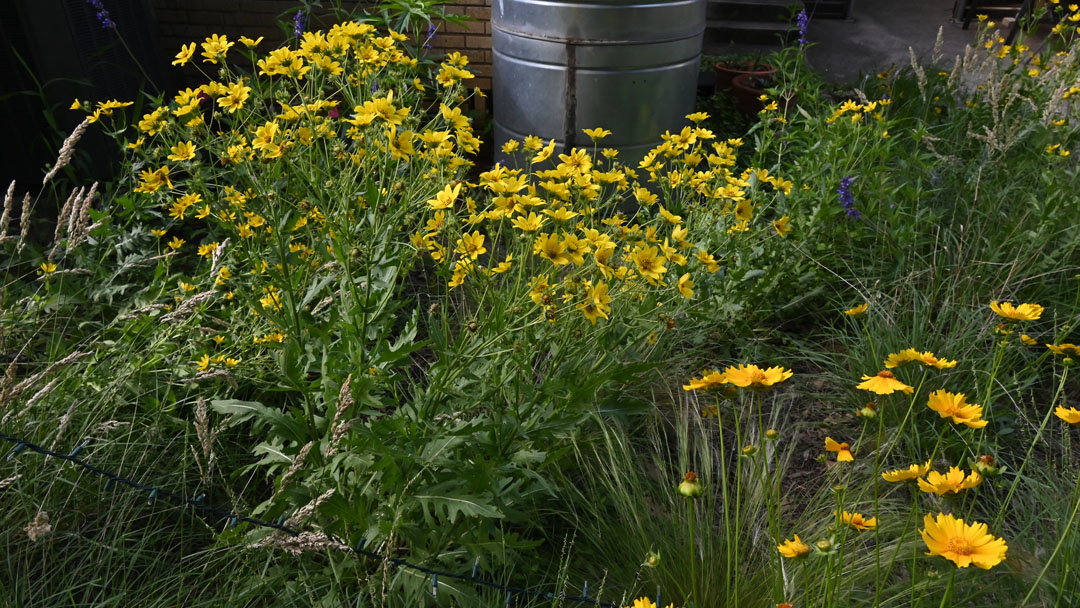
“I do want my kids to have a relationship with nature and I think your yard is the easiest place to do it,” Jennifer said.
Matt added, “I know this has been sort of beat to death, but getting away from lawn and planting native plants does create habitat. And that’s good for everybody, not just the animals, but it’s good for the humans because we’re all connected and it can create a just a more interesting environment.”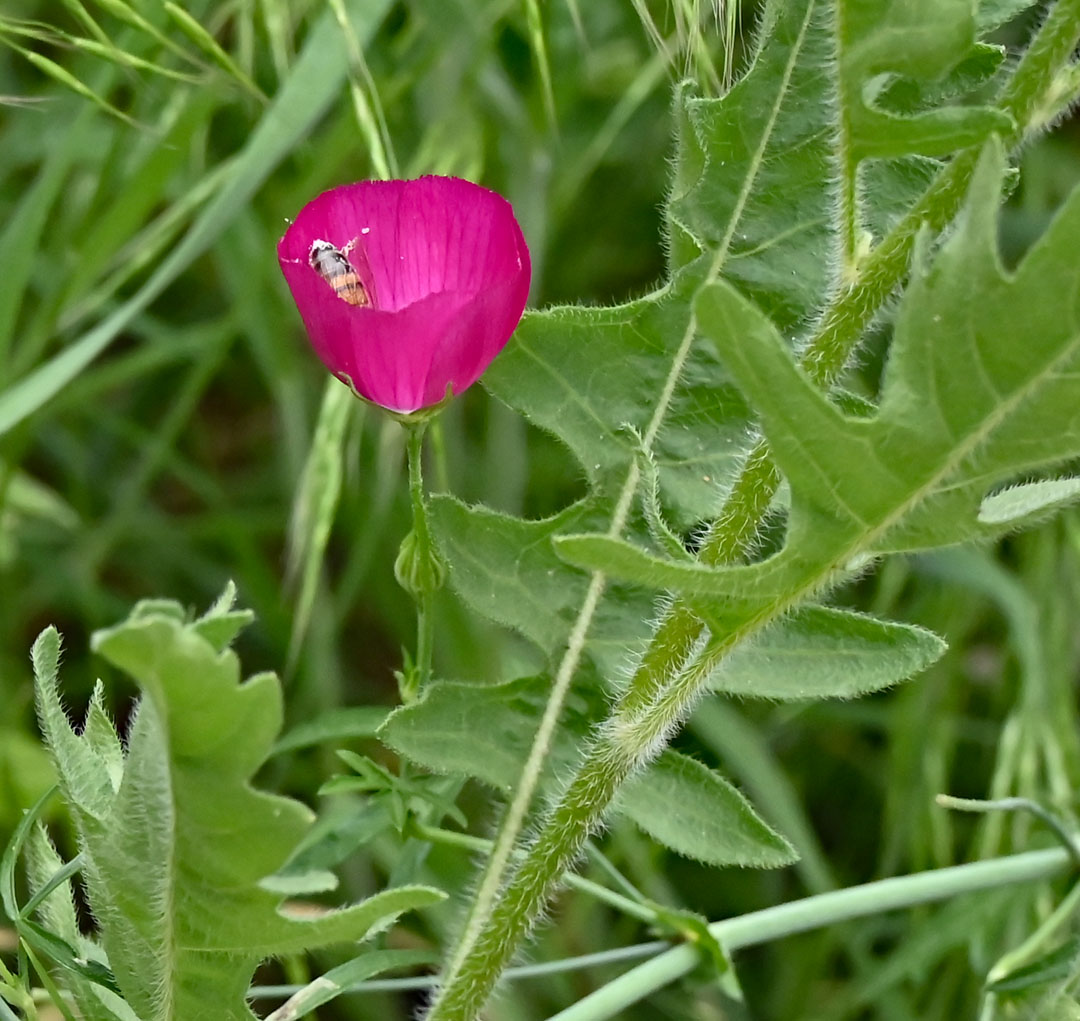
And Michael’s young daughter is growing up with the birds and the bees. “We’re here to learn, learn about the landscape. And this is our little microcosm to do that.”
Watch now!
Thanks for stopping by! And stay tuned for our fall premiere on October 5!
Linda